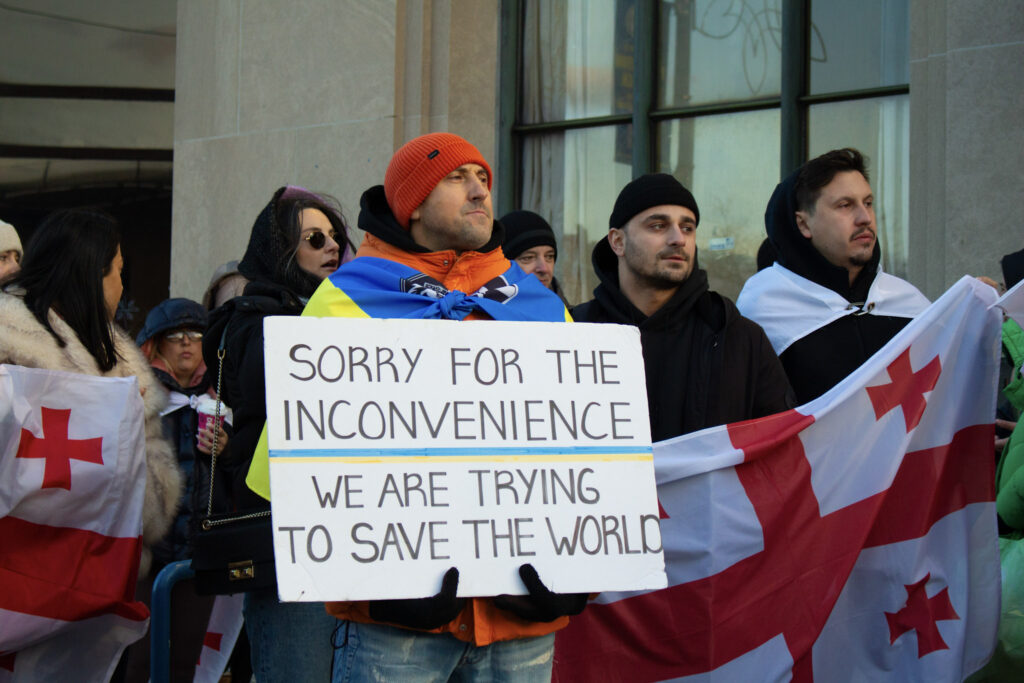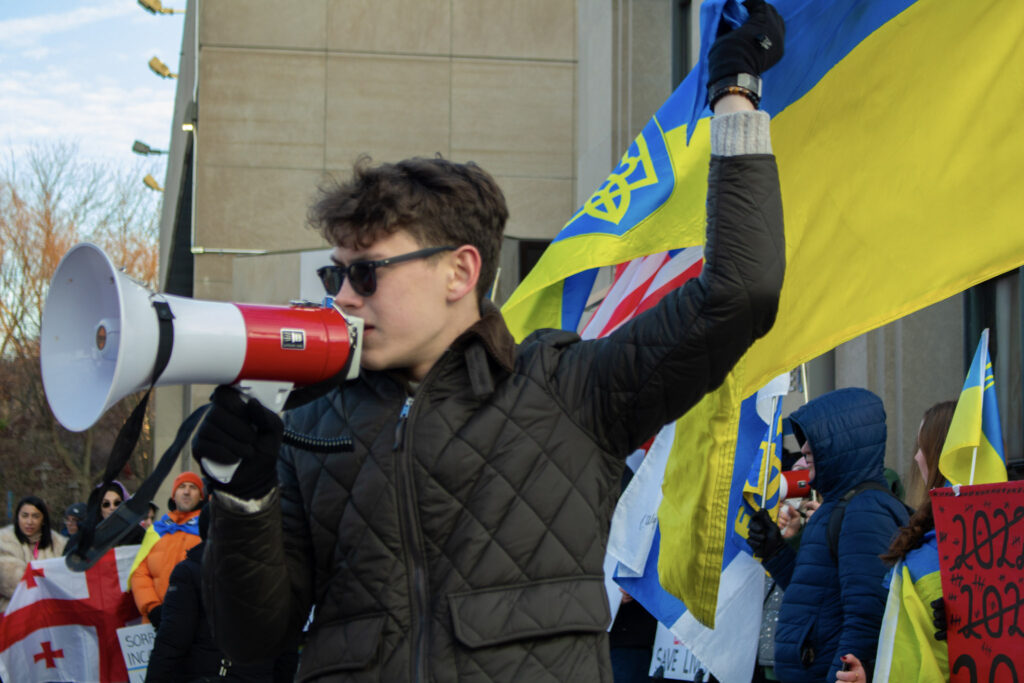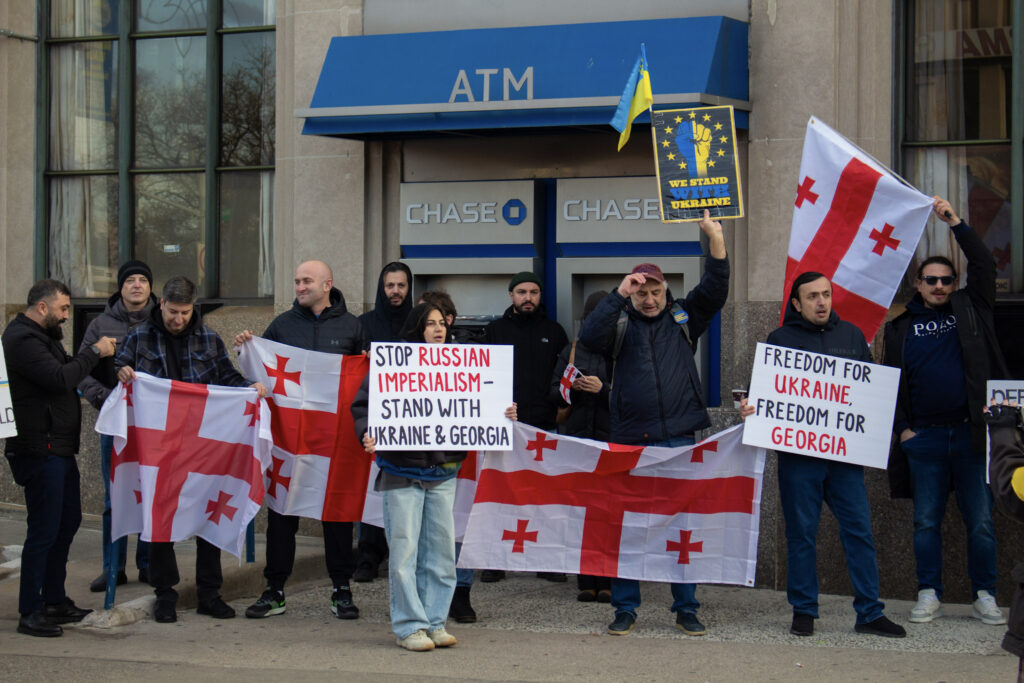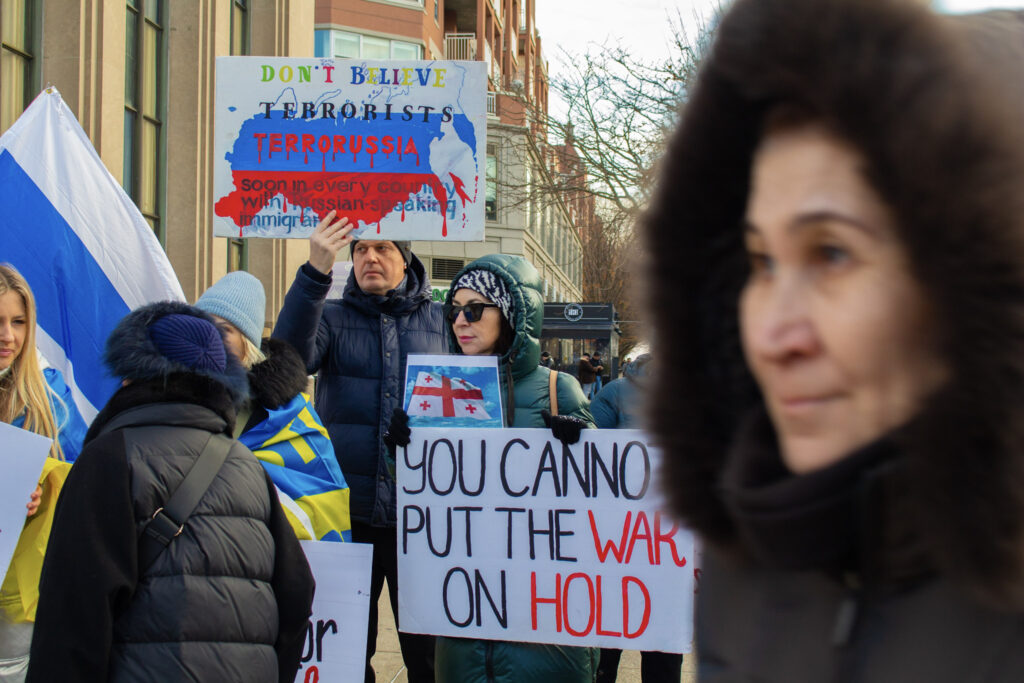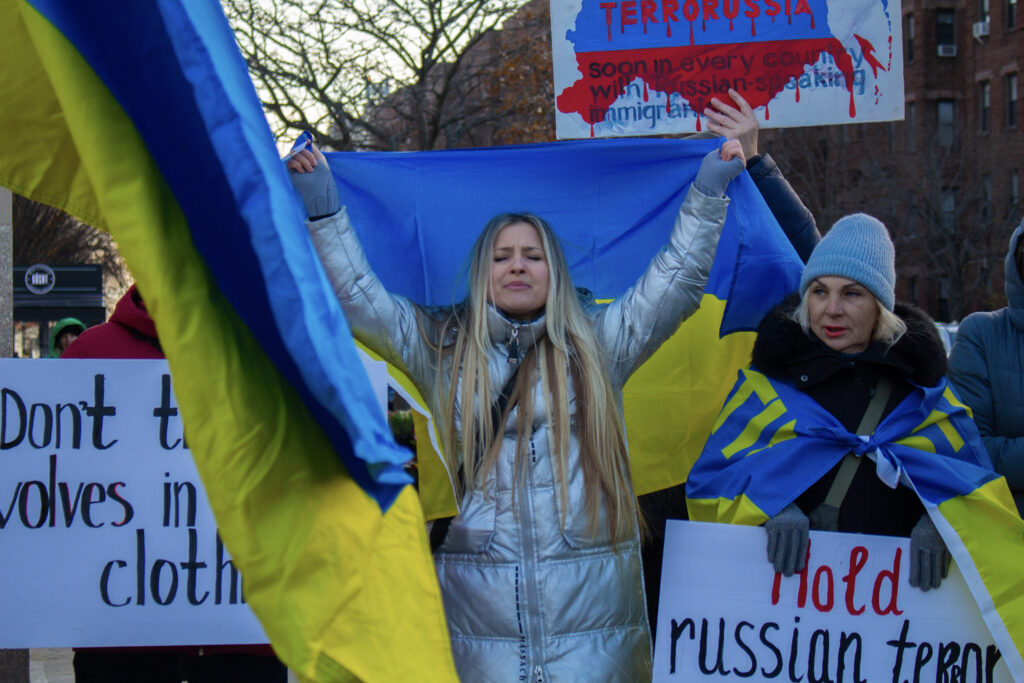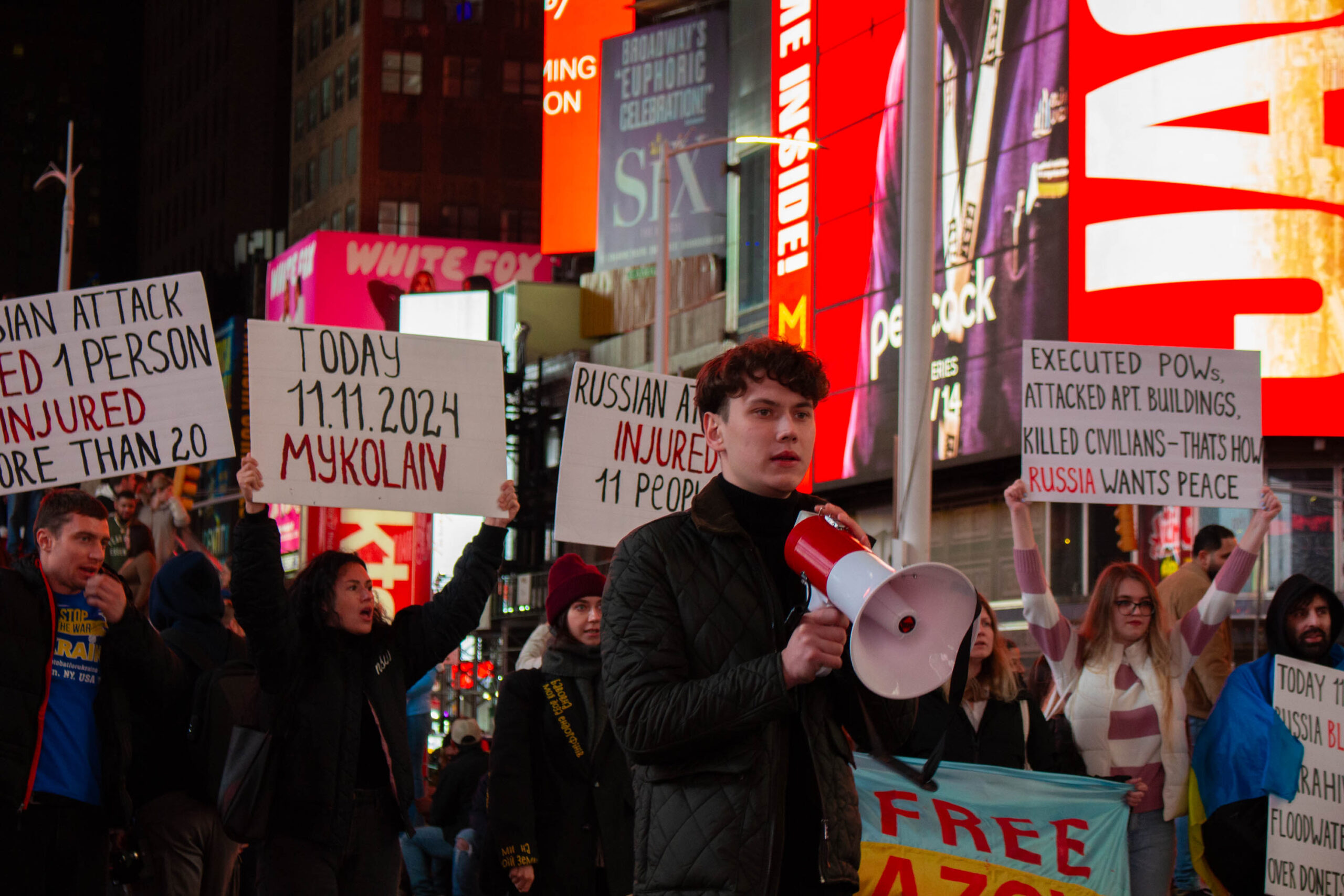Svitanok NYC is a Ukrainian-American nonprofit that aims to raise awareness for Russia’s war in Ukraine through informational campaigns, often in the form of street protests. I first came into contact with the group in 2023 when I covered one of their protests for a news feature. While Ukraine has been one of my main research interests for many years, I wanted to meet real members of the Ukrainian diaspora in New York, the largest in the country, to hear their stories.
Svitanok’s president, and one of its founders, is 21-year-old Oleksandr Taran, a Ukrainian who has lived in New York for many years. Oleks has a deep love for his home country, though he has remained unable to return for more than three years as a result of the ongoing war with Russia.
One of Oleksandr’s goals is to inform the public that the Ukrainian struggle against modern Russia did not just begin in 2022, but has existed in some form since Ukraine’s independence in 1991. The Orange Revolution in 2004, in which Ukrainians took the streets to protest election fraud by pro-Russian Prime Minister Viktor Yanukovych, exposed the level of Russian influence still remaining in Ukraine, despite already existing as an independent country. The Maidan Revolution and the Russian annexation of Crimea—both in 2014 while Oleks and his family were still living in Ukraine—are two examples of the twenty-first century struggle with Russia that Oleks refers to often.
Svitanok held an event on November 11 in Times Square. The theme of the protest was “De-Escalation,” highlighting the current battle in global politics between those who wish to allow Ukraine to expand its strikes into Russian territory (which they had not been able to do until recently), and those who are concerned about Putin’s response to such an act — the use of weapons from a NATO member state to strike Russia — which he would certainly view as an “escalation” of the war. Svitanok aimed to inform the public that Ukraine, the victim of this war, should have the ability to strike inside of Russia, which has been bombing Ukraine for years — and, in their view, without nearly enough international condemnation.
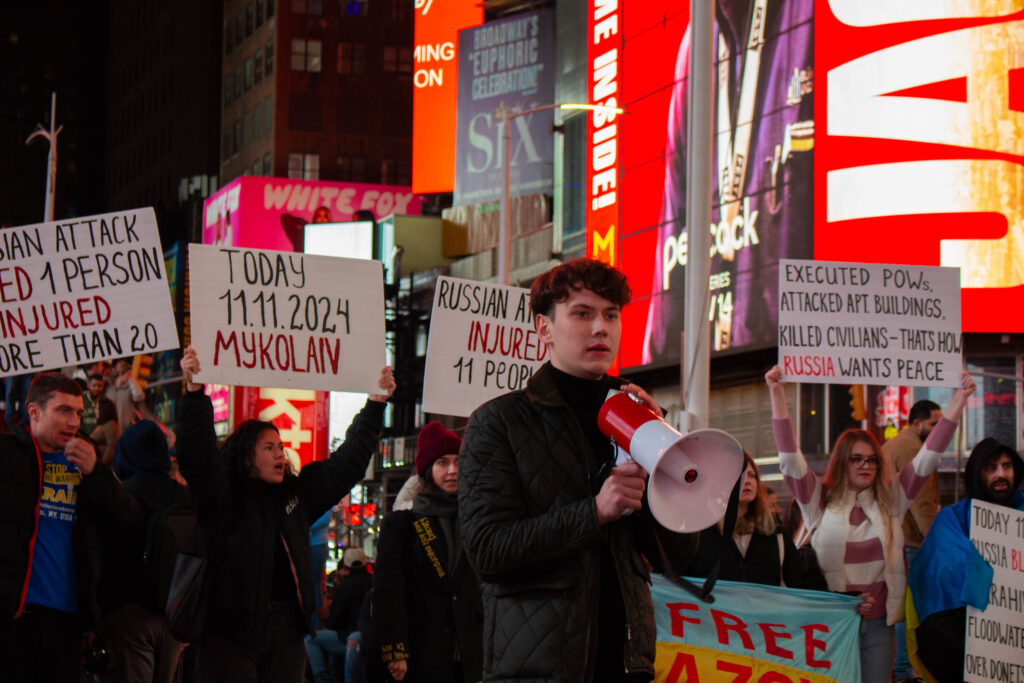
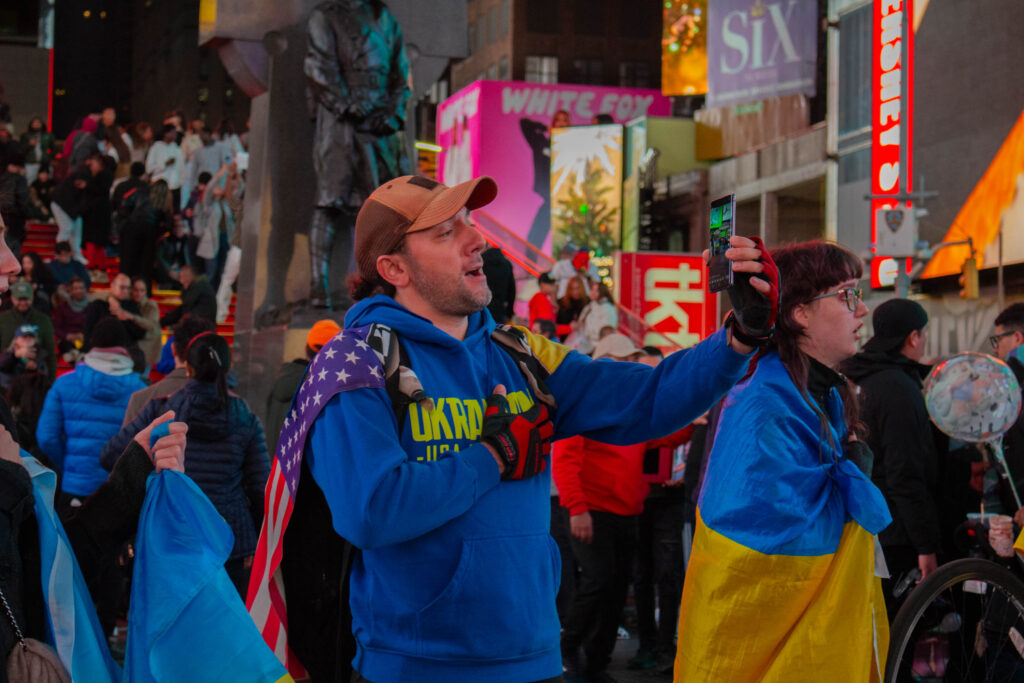
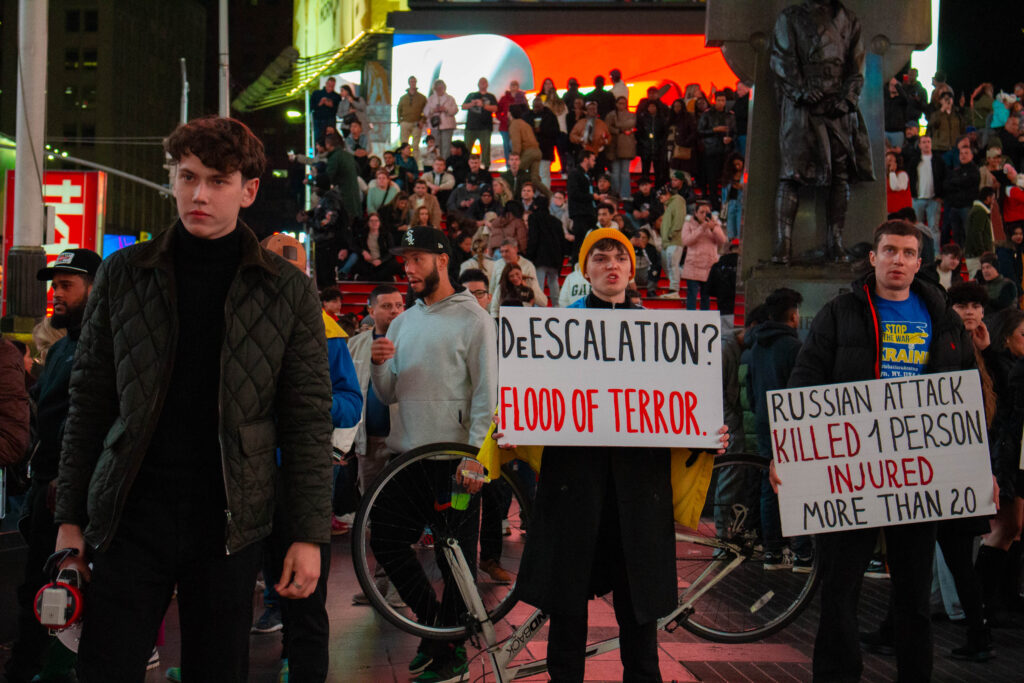
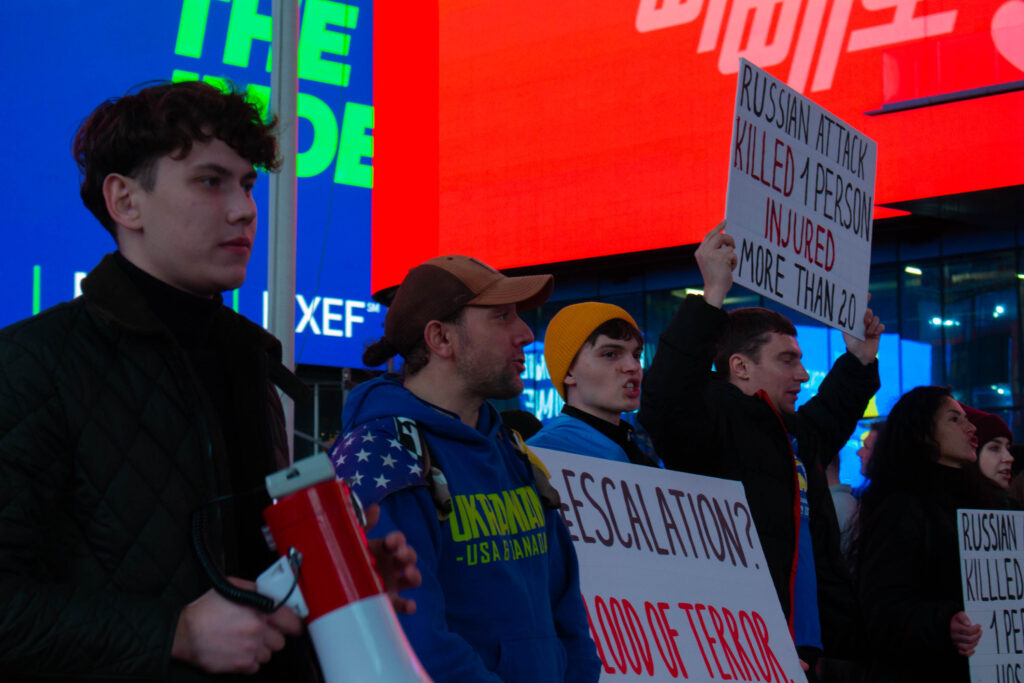
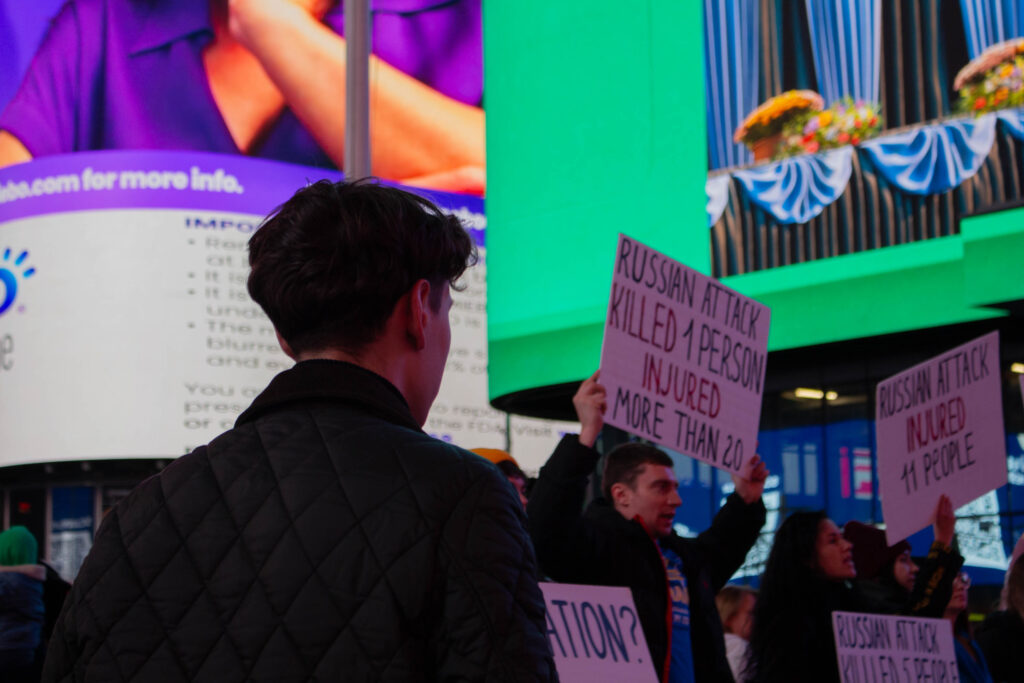
At a second, very special event in Times Square on November 19, the theme was “1000 Days of Resilience,” marking one thousand days since Russia’s full-scale invasion of Ukraine began in February 2022. This was the largest Svitanok protest I have ever witnessed. Many new protesters came out to support the group and inform bystanders in Times Square of Ukraine’s long struggle. A theme highlighted throughout the protest was that, although Ukrainians have endured so much, they have remained resilient, and maintained their strong hope that they will prevail against Russia — something that Svitanok believes will happen sooner rather than later, as Ukraine receives more international assistance.
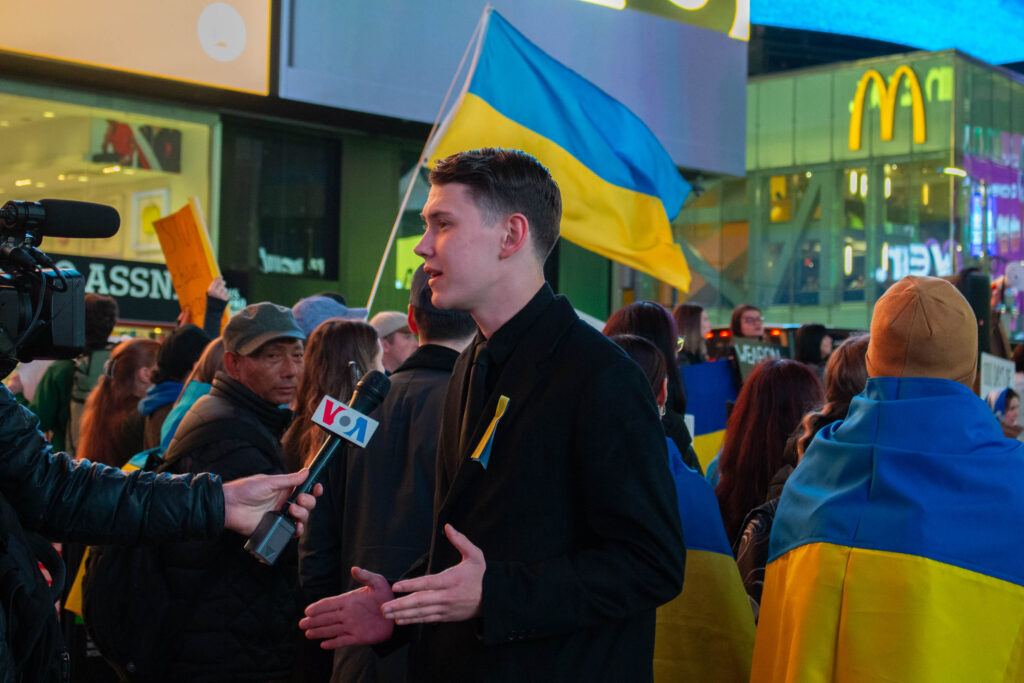
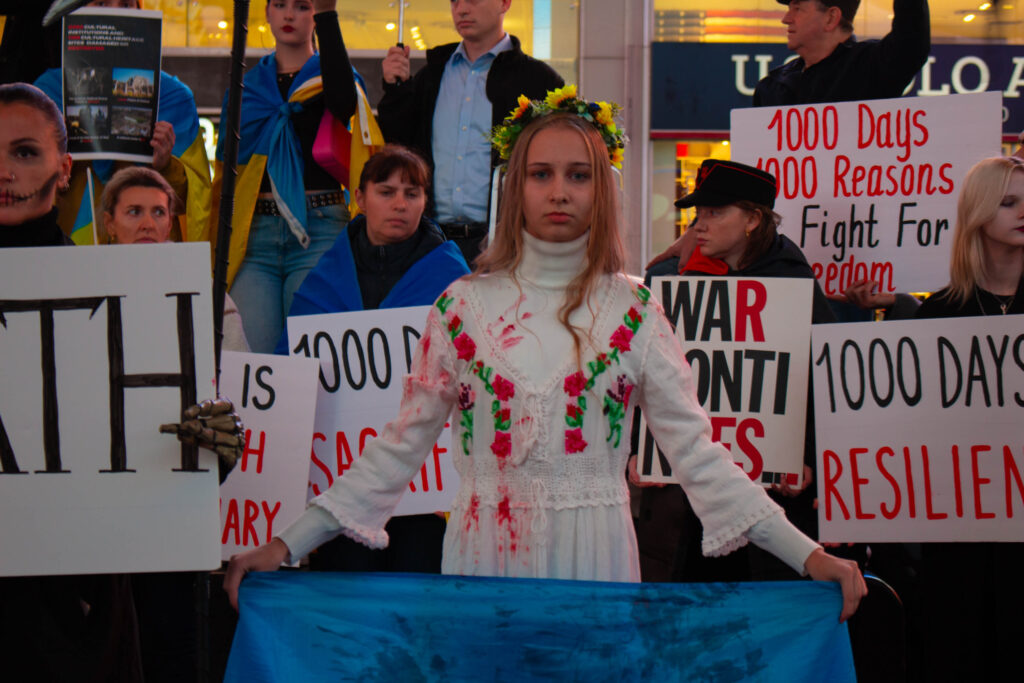
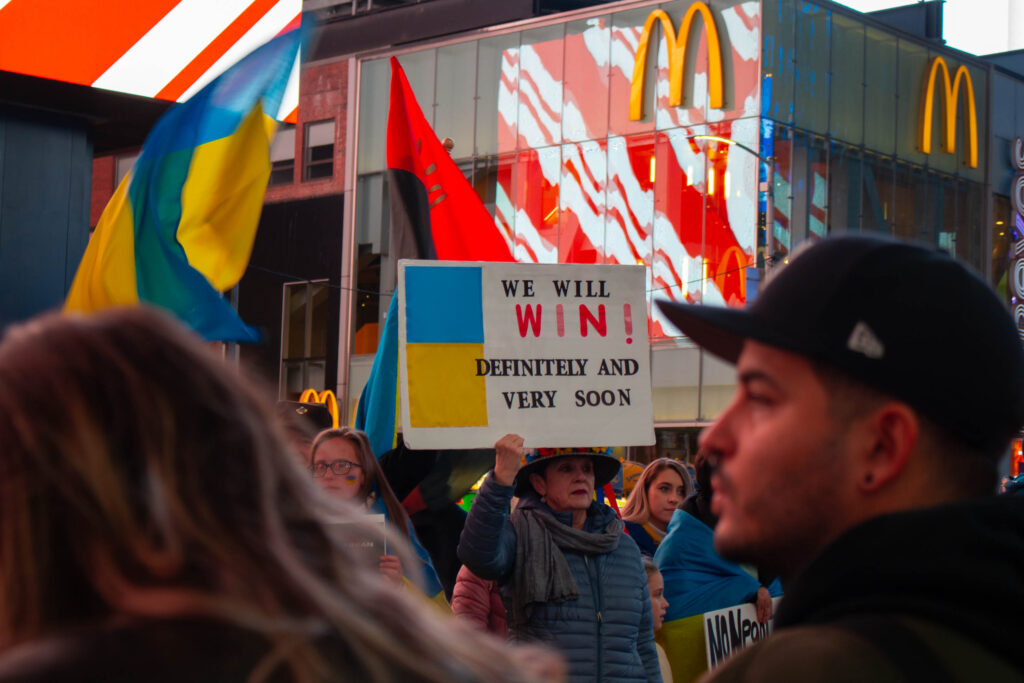
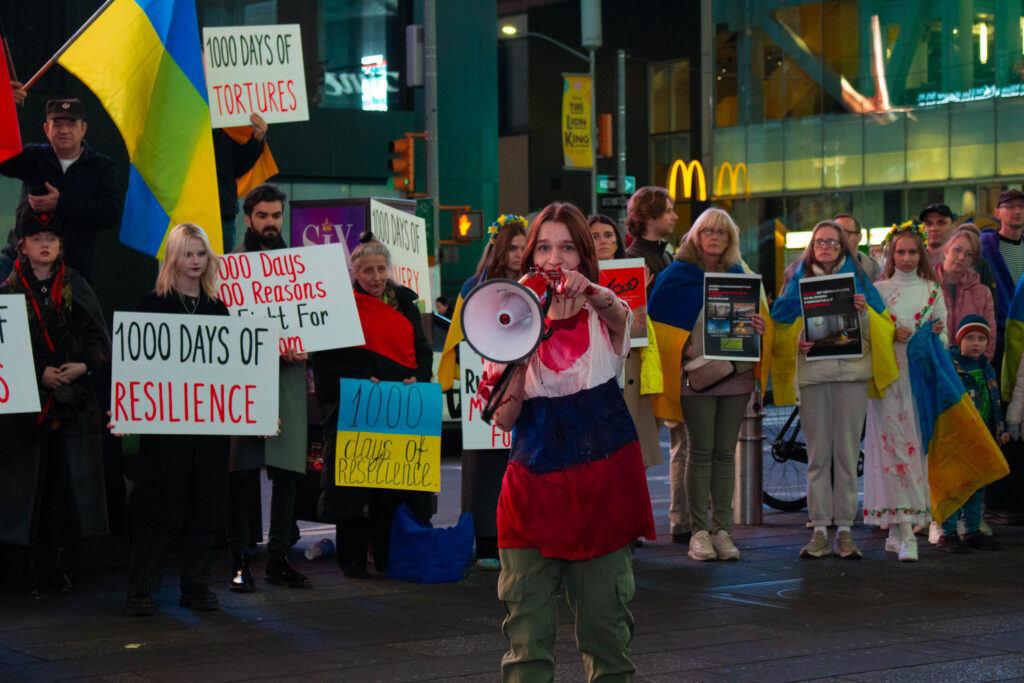
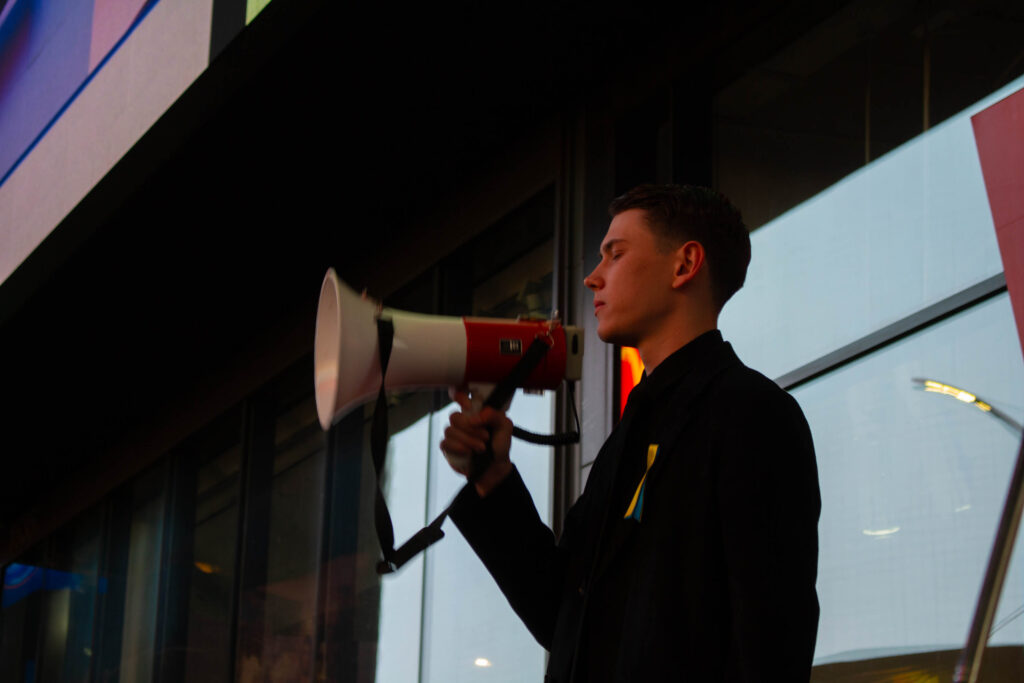
The third and final event I attended occurred on December 7 in Brighton Beach, Brooklyn. This was a strategic choice of location, as Brighton Beach is home to not only a very large Russian community, but many members of the Ukrainian diaspora as well. Before the event started, Oleks told me that the group’s previous protests in Brighton Beach had been subjected to harassment.
Another interesting aspect of the event was that it was held in coordination with members of New York’s Georgian community, who feel a strong sense of solidarity with Ukrainians due to their shared Soviet past, as well as their similar struggle against Russian encroachment and interference. In October, Georgia held parliamentary elections, in which the incumbent, pro-Russian party Georgian Dream won the majority of votes. However, several international groups and leaders — including Georgia’s pro-Western opposition and the European Union — have deemed the election illegitimate, believing that Georgian Dream heavily influenced the vote through fraudulent means. As a result, Georgia’s E.U. candidacy was suspended, significantly dampening many Georgians’ desire to move toward Europe ideologically, and away from Russian influence. Massive protests occurred in Tbilisi, Georgia’s capital, and across the country. At this Svitanok protest, members of these two communities came together to protest against their common aggressor.
